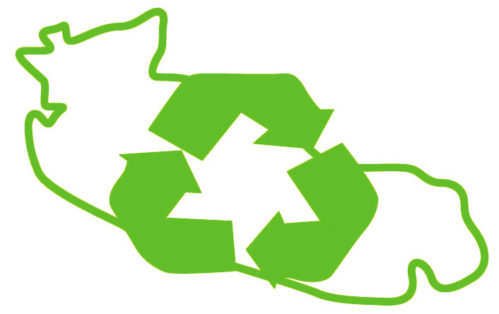Rachelle Stein-Wotten
Local Journalism Initiative Reporter, Gabriola Sounder
This is the year Gabriola Island Recycling Organization hopes its textile recovery social enterprise will be in full swing.
After permitting, supply chain and weather delays in 2022 set work back four months, GIRO’s plan is for its C2C Threads and ReLove Local initiatives to be fully operational in 2023, Michelle Kresnyak, GIRO’s general manager, said.
“The delay on the building did cause a bit of slowing down in the momentum, but not in the enthusiasm,” Kresnyak said.
GIRO earned a third round of funding from the Regional District of Nanaimo’s zero waste grant stream in December, this time $61,545 to cover $30,000 in hard costs for construction and equipment and $31,545 to cover the anticipated shortfall in the first year of operations.
Thus far, GIRO has experienced a number of higher costs in the construction of its Makerspace building, which Kresnyak hopes will be completed by the spring. At the time of application, the total costs remaining to complete the Makerspace was $136,000. Remaining funds from 2022 grants, volunteer labour and solar panels supplied by the Sustainable Gabriola Energy Co-op cover what the 2023 RDN grant does not.
The building will house the shredder that will be key to repurposing textiles into fill for products like dog beds and yoga cushions and the in-prototype acoustic panels, host workshops as well as act as workspace for ReLove Local’s cadre of makers producing already in production products like the popular everything cloths, bowl covers and denim totes. So far makers have made 2,000 products from donated textiles.
In the works this year is the expansion of ReLove Local’s apprenticeship program to increase production while also offering Gabriolans a chance to make some extra income and learn a skill, Paula Brent, the project’s marketing coordinator, said.
“It’s a more nuanced skillset than working with predictable fabric,” as it involves working around stains and damage, Brent said. Individuals who are accepted into the makers team following training will be paid per item made. The application is at relovelocal.ca/apprenticeship.
While Kresnyak says a current staff member will transition to the Makerspace coordinator and they plan to hire an assistant, more volunteer support will likely be needed.
Already GIRO has a backlog of 24,000 pounds of donated textiles ready to be shredded. Sanitizing those in a commercial dryer will take 400 hours alone and before that textiles will need to be sorted and stripped of hardware. A group of volunteers already help with some of that work.
“The more people we can get involved in the project to help manage this large quantity of textile waste that is going to continue being donated to GIRO…we have an endless amount,” so much so that donations have been paused due to storage capacity, Kresnyak said. “We know that once the shredder is plugged in people will be unloading a lot of textiles that they’ve been storing away.
“I anticipate the first year is going to be pretty busy with just dealing with all the backlog that we have.”
By 2024 GIRO hopes C2C Threads and ReLove Local’s operational costs will be covered through its planned revenue streams including sales of unstuffed and stuffed products, raw shredded fibre, the shredding service, acoustic sound panels and workshop attendance.
“The momentum will really kick in this year,” Kresnyak said.





Recent Comments